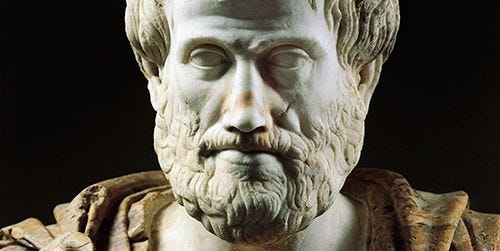Postliberalism without Despotism
Feser argues that postliberal politics can and should be committed to many goods claimed as “liberal,” but an Aristotelian-Thomistic account of reality gives postliberals a more stable foundation.
The rule of law; constitutional constraints on government; the separation of powers; free and fair elections to determine who holds public office; the market economy; free speech and the critical evaluation of ideas that it makes possible; due process; and so on. Defenders of liberalism point to the benefits of these institutions as an argument for their creed. They also sometimes speak as if to criticize liberalism is ipso facto to advocate doing away with these institutions – as if being postliberal entails favoring dictatorship, totalitarianism, a police state, socialism,and similar political bogeymen.
It is hard to know what to say about such silliness other than that it is very silly indeed. The late Michael Novak drew an important distinction between liberal philosophy and liberal institutions. Institutions like the ones just named are often thought of as paradigmatically liberal. This is not quite right, since, at least in some form or other, they predate modernliberalism. But it is true that liberalism has made these institutions central to its understanding of political life, and has deeply influenced the modern world’s understanding of them. All the same, the institutions themselves are different from the various systems of liberal political philosophy that might be used to ground and interpret them (such as the systems of Locke, Smith, Mill, Hayek, or Rawls).
Of course, a critic of liberal political philosophy might reject one or more of the institutions in question wholesale, and certainly would not accept them in quite the forms liberalism advocates. The point is that he need not reject them in all their forms. For example, one might see the value of elections as a means of determining who holds office, without accepting Locke’s assumption that political authority is a product of consent rather than having any natural basis. One might see the value of free debate without entirely endorsing Mill’s particular justification of it, or taking the right to free speech to be as absolute as he andother liberals do. One can acknowledge the advantages of market mechanisms while disagreeing with Smith or Hayek about exactly which sorts of interference with market outcomes are justifiable. One can acknowledge Rawls’s point that modern polities need to be sensitive to the problems posed by pluralism, without accepting his view that it is possible or desirable for the state to be neutral between all reasonable comprehensive doctrines. And so on.




